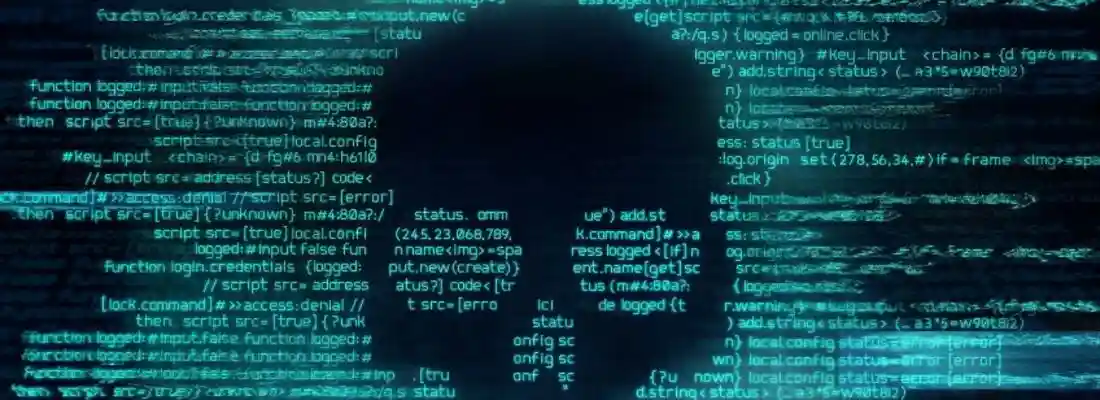5 Most Popular Programming Languages for Cybersecurity
Date: 22 August 2022

Programming languages are sets of rules and keywords that provide instructions for computers to execute. Software programming and coding are essential skills in the technology market today, especially in the field of cybersecurity.
While knowing programming languages or how to write code may not be mandatory skills for cybersecurity professionals to possess, they have come to be an essential aspect of success in the field. This is because cybersecurity professionals are required to often interpret code and identify the activity of malicious threat actors through the same.
If you’re a young student or are just starting your career in cybersecurity, however, it can be confusing to know which programming languages to learn. While you can always pick up new languages along the way, in this article, we give you a brief glimpse into some of the most useful programming languages in cybersecurity. These are:
- Python
- JavaScript
- Java
- C/C++
- PHP
Many reputable universities now provide a wide range of software programming and technical skills training courses in collaboration with renowned training providers. But some students find it very difficult to learn and write simple code that the computer can understand. This inability could be due to a lack of time, resources, and passion. In such a scenario, consulting college-paper.org to write your college papers for you is a good idea. In case you require further help writing your papers, essay writing services reviews give a well-arranged, compiled list of the best essay writing companies and their pricing.
Once you’re over these initial hurdles, it’s a good idea to zero in on a programming language that is relevant to cybersecurity and that you can learn to accelerate your career in the field.
Let’s take a closer look at some of these languages and what their benefits in ransomware prevention and cyber incident response can be:
1. Python
Numerous developers and data scientists use Python, which gives it an edge over other programming languages. Python's simple syntax and generality make it easy to learn. This property makes Python the ideal language for beginners as well as experts. It has an all-inclusive library of standard tools that backup common tasks and commands.
Additionally, as developers consider sustainability, exploring green programming languages can contribute to more energy-efficient coding practices in cybersecurity applications.
Developers used Python to build quite a large repository of digital software, platforms, and applications. In fact, Python Web Development solutions are increasingly in demand for building scalable, secure, and dynamic websites and web applications. These qualities make Python a very in-demand programming language that developers use for both small and complex tasks.
Thanks to its lucid syntax and code readability, it is one of the best languages for cybersecurity professionals to know. It enables you to do malware analysis, identify vulnerabilities, create your own detection intrusion systems and reduce your general dependence on third-party tools.
Another vast exploration area within Python for cybersecurity professionals is utilising web scraping techniques using Python and Selenium. These techniques come into play while collating various data from the internet for data analysis, investigating web-based cyber threats, or gathering threat intelligence. Analysing this collected data can assist in identifying potential vulnerabilities or patterns in cyber attacks, thereby playing a vital role in cybersecurity strategy.
2. JavaScript
Another well-known programming language is JavaScript, which enables programmers to build a website from the very start. It is the most suitable for building diverse elements on a website. A wide variety of add-ons increases the uses of JavaScript.
As JavaScript has a lot of usability and is a key component in development of web pages, knowledge of this language can help you stay a step ahead of malicious actors. Learning JavaScript will enhance your knowledge of how websites and apps work and you’ll therefore be better equipped to keep your business website or app safer.
One of the most common types of cyber-attacks i.e. cross-site scripting is a JavaScript attack in which the cyber criminal plants malicious code in a web application. To stave off such attacks, knowledge of JavaScript is often essential.
However, apart from learning the language, if you’re a business owner or in the cybersecurity team of your organisation, you must have a solid cyber incident response plan and strategy for cross-scripting cyber-attacks. It’s not always possible to stay a step ahead of attackers and therefore being prepared for the inevitable and having a strategy to control the damage is also critical.
3. Java
Java is another popular programming language majorly used in the Android operating system. Java can run on any platform that is Java-supported. Java has uses in e-commerce, finance, and app development. It is currently the third highest ranking programming language.
Penetration testing is one of the important tasks that a cybersecurity professional has to be involved in and an understanding of Java makes this task much easier. In fact, ethical hackers most often employ Java to create and develop ethical hacking programmes as it is a far more dynamic programming language compared to several others.
If you’re an InfoSec professional and Pen-Testing is a big part of your job, do invest some time in learning Java.
4. C/C++
C is one of the oldest programming languages. C++ is like an extended version of C. Both languages are fast, accurate, and efficient. This makes them highly suitable for building different applications.
C/C++ are also most often used for low-level programming. Interestingly, it is through this low-level infrastructure like RAM and system processes that hackers most often infiltrate large networks.
Securing this basic infrastructure is critical and knowledge of C/C++ can come quite in handy for this reason. Several cybersecurity programmes, like the Network Mapper Tool, are also written in C++, further illustrating why this language is one of the important ones for cybersecurity professionals to learn.
5. PHP
PHP is a general-purpose scripting programming language directed towards web development. PHP allows your scripts to gather certain types of data actively from the server. Developers majorly used it to develop dynamic and interactive websites.
Since most websites have been built using PHP, learning the language can hep you understand and analyse any suspicious activity on your site. Further, cyber-attacks like Denial of Service DDOS attacks, which make websites and web applications inaccessible to intended users can very often be thwarted and prevented when you know PHP, along with other critical skills.
Conclusion
Programming languages form the cornerstone of websites, web applications and often even cybersecurity tools. Therefore, as a security professional, it is prudent to develop proficiency in at least 2-3 of the above languages.
Of course, DDoS or Ransomware Attacks on your business or website can’t always be prevented, no matter which languages you are well-versed in – though resources like our Ransomware Prevention Checklist can help.
This is why it’s crucial to have a plan for responding to such attacks and keeping a Ransomware Response Workflow at hand. Incident Response Plans and Ransomware Response Checklists can play a huge role in helping you control the damage in times of chaos when the malicious threat actors do end up succeeding in compromising your network.


.webp)
.webp)


